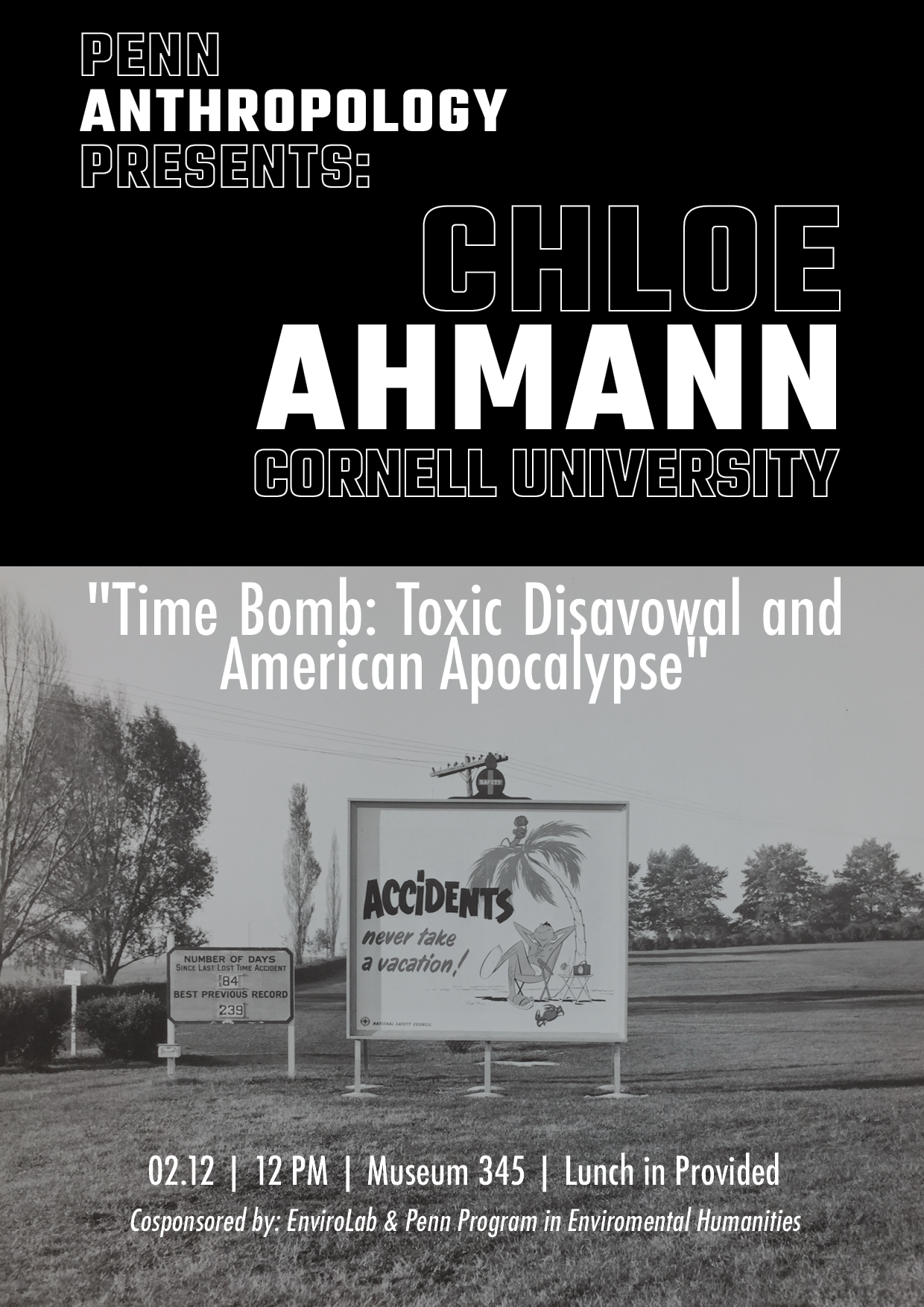Penn Museum 345

Time is political, and honing a sharp analysis of time can mean wielding political power. Honing an analysis tuned to the exigencies of a moment can mean wielding more, but this accommodation has its costs. This talk unfolds on Baltimore’s industrial edge during the late Cold War, considering how residents made sick over years of toxic exposure and anxious for a buyout of their homes learned not to politicize slow violence. They chose instead to dramatize their imminent demise in the event of an industrial disaster: a studied response to the US state’s fixation on apocalypse. In the sense that they eventually secured a buyout, this argument was a success. But it hinged on an agreement to limit charges to the hypothetical. It proceeded as if the gravest obstacles to life lay then, in the devastating future, and not now, ambient and tedious. Examining how residents came to strike this painful bargain and the bleak conditions that made it seem like their best choice, I consider what it means to privilege an analysis that works over an analysis that speaks to life as lived—especially when the former holds that a hypothetical death carries more political value than a real one.

 Department of Anthropology
Department of Anthropology